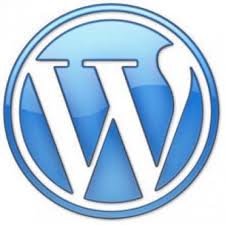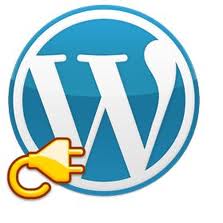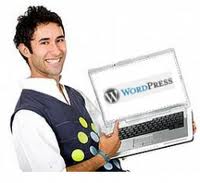 Update WordPress? Oh No! That is way too scary. Well…yes it is scary, but it doesn’t need to be. Follow this Step By Step tutorial, and your WordPress Blog will be safely updated and running even better than it did before.
Update WordPress? Oh No! That is way too scary. Well…yes it is scary, but it doesn’t need to be. Follow this Step By Step tutorial, and your WordPress Blog will be safely updated and running even better than it did before.
Many people do not update their WordPress when a new version comes out. They think, ‘Why fix something when it ain’t broke?’ Or ‘What if something goes wrong and I don’t know how to fix it?’ That’s what I’ve been doing for months. But then I found out how to do it with minimal risk – and why I should – here’s how and why.
Do You Really Need To Update To New Versions of WordPress?
Yes, absolutely. But why? Well, there are several very good reasons why you should.
1. Security
Evil spammers and hackers are never asleep at the wheel, so we shouldn’t be either. WordPress updates are mainly about increasing security. There are dozens of highly paid geeks employed by WordPress, just to keep our WordPress blogs safe from evil-doers. We should respect their work (the WordPress geeks, not the Evil Ones  ) and do everything we can to keep our blogs as safe as possible.
) and do everything we can to keep our blogs as safe as possible.
2. Speed
Speedy websites are successful Websites – or rather slow websites are guaranteed to sink without trace. Most surfers spend about 2-3 minutes only at most websites. If potential visitors or customers have to wait more than 2 seconds for a website to load, they will click away and we will never know they were even there. New WordPress updates always include new ways to increase speed.
3. Bug Fixes
There are always bugs! It’s a fact of online life. I have to admit I have never had any trouble with my WordPress software, but if you check out the WordPress Support pages, you can read how other people have had trouble. Every new WordPress update has some bug fixes included.
4. Good Mental Health.
No one likes to go to bed night after night, with that nagging thought, ‘I know I should update my WordPress, but I really don’t want to’ feeling. I’ve just successfully updated both my blogs and now I’m feeling quite (but not very) proud, and full of super hero, eat-my-dust confidence in my blogging powers! I’m now eager to write my next riveting article with renewed vigour…. Settle down Carol. OK….but, it does feel good to be right up to date and ready to roll. Are we rolling, Bob? but I digress…..
Settle down Carol. OK….but, it does feel good to be right up to date and ready to roll. Are we rolling, Bob? but I digress…..
Hot Tip: people who know more about these things than me (thanks Martin), advised me to not update to a new WordPress version immediately it comes out. It’s better to wait for a couple of weeks for any unexpected bugs to be ironed out of the new version. Then update to the new version.
How To Safely Update WordPress… & Live to Tell The Tale
Buckle Up, Folks! This could be bumpy…just kidding!
1. Delete all the plugins you are not actively using
If you aren’t using them, delete them – they add size and weight to your overall blog even when they are not activated. We want our blogs to be fit and lean and fast. So ditch the free loaders.
2. Update all your plugins.
I went through all of mine and updated each one individually from my Dashboard. That way I could see if any of them had a problem with updating. None of them did. It takes about 2 seconds for each one to update.
3. Check your blog to make sure everything is still working properly.
4. Deactivate All of Your Plugins
This is a very important step. If anyone ever has a problem with a WordPress upgrade, it is 90% due to a plugin incompatibility. Once the upgrade is done, we will reactivate the plugins again, one at a time – see below.
5. Think about Updating Your Theme
In fact I didn’t update my Weaver Theme II before I updated WordPress. I decided I’d update the theme after I’d updated WordPress, if I hit a problem – which I didn’t.
6. Back up Your Blog – very important step!
I did this from my Hostgator cPanel’s Backup software and saved it to my own computer as well as at Hostgator. I researched several Backup Plugins but even the so called ‘easy’ ones were way too geeky for me. Hostgator says it can restore a complete blog from one of their Backups, so I trusted them. Your own Host probably has similar Backup options.
This is another reason why you should host your blog on a very reliable web host such as Hostgator. I use Hostgator and they have been fantastic if I’ve ever need to get some help with geeky stuff.
7. Save Your Personalized Theme Design
I did this from inside my Theme software. And just to be sure, I went through my Design set up, and made Screen Shots of all my Design Settings and saved them on my computer….just in case. Then, if the worst had happened, I would have easily been able to reload the Theme afresh, and easily duplicate the same Design Settings from my Screen Shots.
…………..Take a Deep Breath…..
 8. Click ‘Update WordPress’ – using the automatic update tab on your Dashboard.
8. Click ‘Update WordPress’ – using the automatic update tab on your Dashboard.
YES! It takes about 1 second. That wasn’t so bad, was it?
9. Open a new browser Window and login to your blog on the second screen window.
Check how your blog is looking in your new separate browser window. Remember we haven’t activated any plugins yet, so any infrastructure that depends on a plugin will not be visible yet.
10. Reactivate All Your Plugins – But Do It One at a Time
Do the reactivating back at your first screen, and check your results on the second window’s screen. That allows you to have a side-by-side comparison of before and after reactivation.
It’s possible to reactivate all the plugins at once using Bulk Action in Dashboard, but that is not a good idea. It’s much better to go through and re-activate your plugins one at a time. Reactivating plugins one at a time means that if there’s a problem, you will know exactly which plugin is causing that problem. If you’ve reactivate them all at the same time using Bulk Action, you won’t know which one is the culprit. Then you would have to start trying to find the problem by trial and error.
After each Reactivation, go to your other open browser window, refresh the page, and make sure everything loads up and is working ok. If there is going to be a problem with an Update, it will most likely due to a Plugin incompatibility.
10. Go Through ‘Settings’ on your Dashboard
It’s a good idea to go through and make sure all your Settings are still how you want them, and to make sure they haven’t been scrambled by the upgrades.
Mine were all fine, but I did find a couple of the updated Plugins that needed some resetting of new options. New versions of plugins sometimes have some new you-beaut features that need to be tweaked so they are just how you like them.
For example the Jetpack plugin had to be Reconnected to WordPress.com, but that was only 2 clicks of the mouse, and all done from inside Dashboard.
Alright! Job Done. Congratulations. Feels good doesn’t it?
Time for some well deserved chips!
…………Cue Motto!
Plan Well Start Small Think BIG!
Update: Oops! my Adsense ads seem to have gone AWOL. I’ll have to check that out….tomorrow – it’s very late and I need my beauty sleep ![]()
….Alright…it seems that Google pulled the plug on my Adsense ads because i haven’t given them my bank details yet, and they want to pay me! So hopefully it was just co-incidence that it happened exactly at the same time I did the WordPress upgrade. The Adsense ads should be back once Google has verified my Bank details. Fingers crossed.

Pingback: Online Security: Security Check List For Bloggers
Pingback: Make Website FAST with Quick Cache Plugin: Before & After Tests